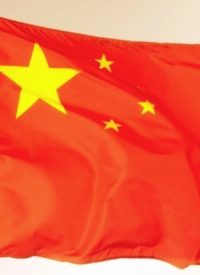
With the nation in a long and steep economic decline, few Americans are expected to base their votes this fall on international issues. Issues relating to diplomacy and the intricacies of international trade are, well, foreign to most of us. But one mysterious, far-off land seems to be very much on the minds of candidates and voters this year. A large number of campaign commercials are focusing on our nation’s trade with and outsourcing of jobs to China, an emerging superpower that that has amassed a large share of America’s wealth and holds huge amounts of America’s debt.
At least 29 candidates in House and Senate races across the country have aired ads suggesting their opponents have been too sympathetic to China, the New York Times reported last Saturday. Unlike many issues that have candidates taking sides along party or ideological lines, this year’s races find Democrats and Republicans, liberals and conservatives blaming their opponents for the loss of jobs and economic power to China. While the issue might seem better suited for challengers running against incumbents who have a record of supporting trade deals or tax policies said to encourage the export of jobs, some incumbents running against free trade advocates have turned the issue against their challengers. In Ohio, for instance, congressman Zack Space, a Democrat, hopes to make political hay of the fact that his Republican opponent is a self described free trader or as a Zack Space ad describes him, he is “free-trading, job-killing Bob Gibbs.”
“Bob Gibbs is a proud free trader,” the narrator says in the ad that twice shows Gibbs at a lectern saying, “I’m a free trader.” The ad claims Ohio has lost 91,000 jobs to China “through unfair trade deals like NAFTA” and that Gibbs wants more trade with China “to increase their standard of living.” The ad uses the Chinese dragon for visual effect and addresses the Republican foe with the Chinese word for thank you.
“As they say in China, xie xie, Mr. Gibbs!”
How the North American Free Trade Agreement sends jobs to China is not explained in the ad, but campaign spots of 30 seconds or less are not designed for thoughtful analysis. Republican challenger Spike Maynard in West Virginia uses Chinese music and the image of Chairman Mao, the Chinese ruler who has been dead for decades, to say that a bill supported by Rep. Nick Rahall created wind-turbine jobs in China.
Sixty years ago, Republicans taunted Democrats with the question, “Who lost China?” after Chairman Mao and his fellow Communists took over the mainland. Now Democrats and Republicans are fighting over who is responsible for building the Asian tiger’s economy at the expense of American workers. Senate majority leader Harry Reid, in a tough fight for reelection in Nevada, has begun running ads calling Republican Sharron Angle “a foreign worker’s best friend” for supporting corporate tax breaks that Reid says has led to outsourcing of jobs to China and India.
Republican John Boehner of Ohio, the House minority leader, last week blamed President Obama and Speaker Nancy Pelosi for “a stimulus that shipped jobs overseas to China instead of creating jobs here at home.” And Pelosi, the Times reports, began encouraging candidates this spring to use the issue against Republicans after she reviewed polls showing voters were in favor of eliminating tax breaks for companies that do business in China. Democrats cite studies from the Economic Policy Institute purporting to show that three million American jobs have been outsourced to China since 2001 because of the growing trade imbalance between the two countries.
Politicians as well as economists and trade experts are far from unanimous, however, on how much of mainland China’s growth in jobs and economic output is due to American trade or tax policies. Much of the expansion of its manufacturing base has come from investment from Asian sources, including Taiwan, Hong Kong, and South Korea. But columnist and TV commentator Pat Buchanan, who repeatedly raised the balance of trade deficit with China as a candidate for President in the 1990’s, warns that the threat to America from Chinese economic and military power continues to grow as a richer, stronger China pursues aggressive trade diplomatic policies.
“Through predatory trading, China had killed its U.S. competitor in rare-earth materials, establishing almost a global monopoly,” Buchanan wrote in a recent column. “And with Beijing’s threat to use its monopoly of rare-earth materials to bend nations to its will, how does the Milton Friedmanite free-trade ideology of the Republican Party, which fed Beijing $2 trillion in trade surpluses at America’s expense over two decades, look now?” he asked.
Some members of Congress now blaming the loss of jobs to China on their opponents would probably prefer not to look at their own voting records. In 2007 Congress passed legislation to ban incandescent light bulbs, beginning with the 100-watt bulb in 2012 and ending with the 40-watt bulb in 2014. Since the law was passed, General Electric has closed its last major bulb-producing factory in the United States. Many of the more energy-efficient, but more-costly-to-produce, fluorescent bulbs will likely be made in China, where the labor costs are much lower than in the U.S.
“Environmental activists and their allies in Washington were either too ignorant of basic economics to see these job losses coming, or they were simply too callous to really care,” Heartland Institute science director Jay Lehr told Newsmax.com.
Meanwhile, the debate goes on from California, where Senator Barbara Boxer, a Democrat, rips Republican rival and former Hewlitt-Packard executive Carly Fiorina for “proudly stamping her products ‘Made in China,’ ” to Connecticut, where in a recent debate Democratic Senate candidate Richard Blumenthal challenged Republican Linda McMahon to explain why the action figures for her World Wrestling Entertainment were made in China. McMahon said that decision was made by the toy company, adding the U.S. does not “have the kind of policies in place here that are conducive to manufacturing.”



